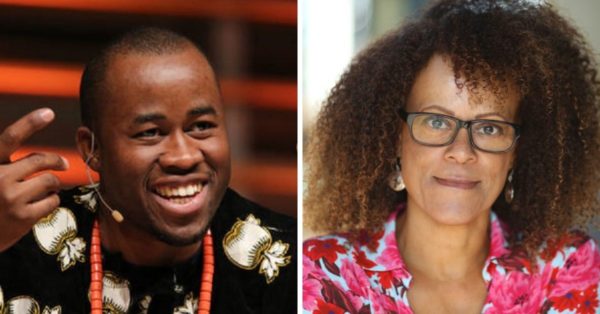
Bernardine Evaristo, for her eighth book Girl, Woman, Other, and Chigozie Obioma, for his second novel An Orchestra of Minorities, have been shortlisted for the 2019 Booker Prize, worth £50,000. It is the Nigerian Obioma’s second consecutive shortlisting, following that for his debut novel The Fishermen in 2015, and the British-Nigerian Evaristo’s first shortlisting, on her first nomination. Obioma also becomes the first Nigerian to be shortlisted twice and the first African to be shortlisted for their first two novels. There had been two more Africans on the 13-strong longlist: the Nigerian Oyinkan Braithwaite, for her debut My Sister, the Serial Killer, and the British-South African Deborah Levy, for The Man Who Saw Everything.
READ: 25 Authors, 41 Novels: An African History of the Booker Prize for Fiction
Making the six-strong shortlist also are two former winners in Margaret Atwood, for her The Handmaid’s Tale sequel The Testaments, and Salman Rushdie, for his Quichotte, as well as the Turkish novelist Elif Shafak, for her 10 Minutes 38 Seconds in This Strange World, and the British-American Lucy Elmann, for her Ducks, Newburyport. Shortlisted authors will receive £2,500 and a specially bound edition of their novel.
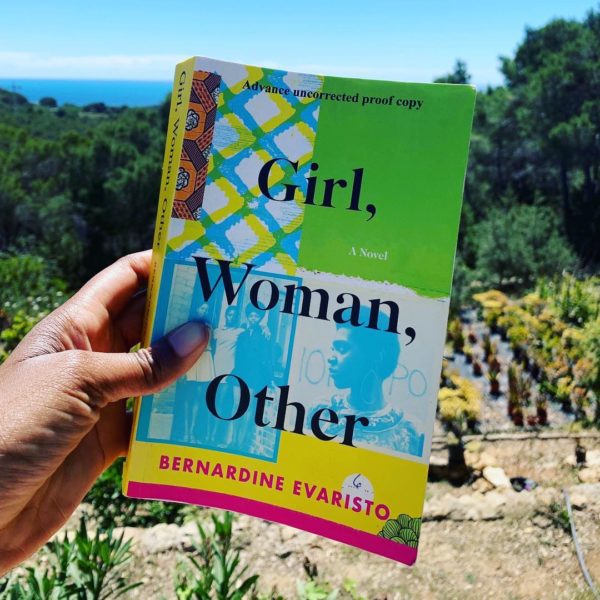
Evaristo’s Girl, Woman, Other was released on 2 May 2019 by Penguin Random House imprint Hamish Hamilton. The Brunel University creative writing professor, a dynamic visionary best known in the African literary scene as the founder of the Brunel International African Poetry Prize, the continent’s most influential poetry institution, is in fact a prolific writer of fiction, her oeuvre including the experimental novels The Emperor’s Babe (2001), Soul Tourists (2005), and Lara (2009), the novella Hello Mum (2010), the formal novels Blonde Roots (2008) and Mr Loverman (2013), and the poetry collection Island of Abraham (1994). Girl, Woman, Other was hailed by Elle as “a choral love song to black womanhood in modern Great Britain.” Here is a description by its publishers:
Teeming with life and crackling with energy – a love song to modern Britain, to black womanhood, to the ever-changing heart of London.
Girl, Woman, Other follows the lives and struggles of twelve very different characters. Mostly women, black and British, they tell the stories of their families, friends and lovers, across the country and through the years.
Joyfully polyphonic and vibrantly contemporary, this is a gloriously new kind of history, a novel of our times: celebratory, ever-dynamic and utterly irresistible.
Read our coverage of the book here.
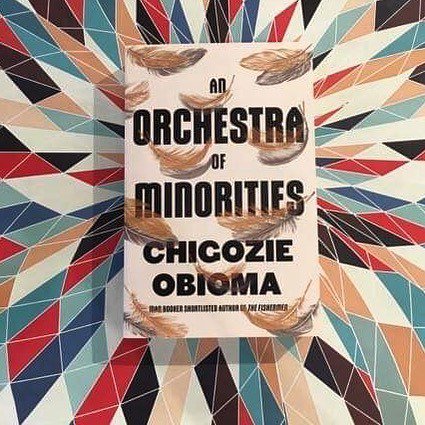
Obioma’s An Orchestra of Minorities was released on 8 January 2019 by Little, Brown. We covered the novel’s public life since its May 2017 acquisition by its publisher. Read the first chapter. Here is a description:
Set on the outskirts of Umuahia, Nigeria and narrated by a chi, or guardian spirit, AN ORCHESTRA OF MINORITIES tells the story of Chinonso, a young poultry farmer whose soul is ignited when he sees a woman attempting to jump from a highway bridge. Horrified by her recklessness, Chinonso joins her on the roadside and hurls two of his prized chickens into the water below to express the severity of such a fall. The woman, Ndali, is stopped her in her tracks.
Bonded by this night on the bridge, Chinonso and Ndali fall in love. But Ndali is from a wealthy family and struggles to imagine a future near a chicken coop. When her family objects to the union because he is uneducated, Chinonso sells most of his possessions to attend a college in Cyprus. But when he arrives he discovers there is no place at the school for him, and that he has been utterly duped by the young Nigerian who has made the arrangements.. Penniless, homeless, and furious at a world which continues to relegate him to the sidelines, Chinonso gets further away from his dream, from Ndali and the farm he called home.
Spanning continents, traversing the earth and cosmic spaces, and told by a narrator who has lived for hundreds of years, the novel is a contemporary twist of Homer’s Odyssey. Written in the mythic style of the Igbo literary tradition, Chigozie Obioma weaves a heart-wrenching epic about destiny and determination.
The judging panel comprises the former publisher and editor Liz Calder, the novelist Xiaolu Guo, the musician Joanna MacGregor, the writer Afua Hirsch, and Hay Festival director Peter Florence, who chairs it. They read 151 submissions.
“I would be more than happy to announce any of these six as the winner and feel we had got something spectacular and wonderful that would convince someone who read one book a year as well as [literary critic] Gillian Beer,” Florence said. “They range, these books, the shortlist, across acres of time and space and geographical location, and culture, and civilisation and they are like a complete compendium of wonders of the world.”
“So the six books to go forward now, it was tough, it was a very hard choice for us to make,” said MacGregor. For Calder, “It’s going to be difficult choosing the winner out of six such brilliant, such different, and such memorable books.” Hirsch, meanwhile, is “still in awe of the range of stories, the voices that they bring and the worlds that they open up. It’s an incredibly eclectic group.” After the longlist was announced, the judges had stated that “There are no favorites; they are all credible winners.”
With the Man Group having ended its sponsorship, the prize has dropped “Man” from its name and has reverted to The Booker Prize, and is this year supported by Crankstart, a charitable foundation owned by Michael Moritz and Harriet Heyman.
The prize’s 2018 winner Anna Burns saw sales for her Milkman skyrocket from 963 in the week before the announcement to 9,446 in the week after, and then to 18,786 in the week following. At the moment, the novel has sold 546,500 copies in all formats and been translated into 40 languages.
Alright, we know what you’re thinking: Atwood and Rushdie are former winners; Rushdie’s novel hasn’t been universally well received by critics; Atwood’s isn’t out yet; Elmann is being predicted as the underdog; and not everyone would be keen on the former two even if another win for Atwood would help the industry by way of sales. And then there are Evaristo, for whom this would be the crowning achievement in a brilliant creative and curatorial career, and Obioma, who is one of this prize’s biggest success stories, and Shafak, who has been under investigation by the Turkish government. Not because they are African, but our money is on Obioma and Evaristo.
The winner will be announced on 14 October at a ceremony in London.
Brittle Paper congratulates Bernardine Evaristo and Chigozie Obioma.



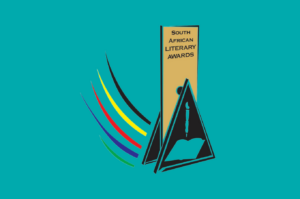
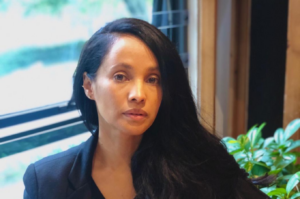
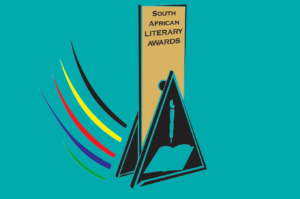
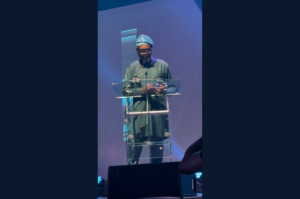


Congratulations to Nadifa Mohammed and Damon Galgut - GOOD NEWS NIGERIA September 17, 2021 03:53
[…] and The Shadow King respectively in a historic achievement. The year before that, the Nigerians Chigozie Obioma and Bernardine Evaristo were both shortlisted with the latter going on to […]